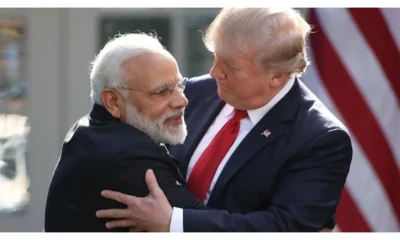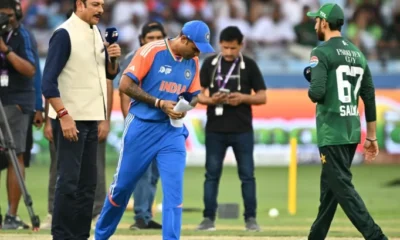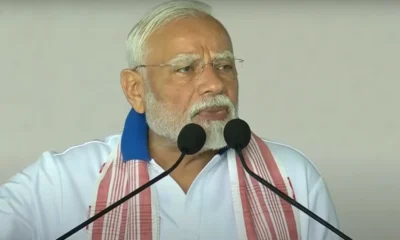Latest business news
Mood from Moody’s ratings doesn’t last, Standard & Poor’s doesn’t upgrade India’s rating

India News
Union Budget 2026 highlights: Nirmala Sitharaman Raises Capex to Rs 12.2 Lakh Cr, West Bengal Gets Major Allocation
Finance Minister Nirmala Sitharaman is presenting the Union Budget 2026 in Parliament today. Follow this space for live updates, key announcements, and policy insights.
India News
Union budget 2026 to be presented on Sunday with special trading session
The Union Budget 2026 will be presented on a Sunday for the first time in over two decades, with NSE and BSE announcing special trading sessions for the day.
India News
Modi says right time to invest in Indian shipping sector; meets global CEOs
-

 Latest world news20 hours ago
Latest world news20 hours agoTrump announces trade deal with India, claims New Delhi will stop buying Russian oil
-

 India News20 hours ago
India News20 hours agoMarkets surge as Nifty jumps 750 points after India-US trade deal
-

 India News19 hours ago
India News19 hours agoUS-India trade deal to strengthen strategic partnership, says Amit Shah
-

 India News19 hours ago
India News19 hours agoIndia welcomes US tariff cut as PM Modi thanks Trump for easing trade barriers
-

 LATEST SPORTS NEWS19 hours ago
LATEST SPORTS NEWS19 hours agoPakistan looks to force majeure as India boycott threat looms in T20 World Cup
-

 India News15 hours ago
India News15 hours agoSupreme Court raps Meta over WhatsApp privacy policy
-

 India News11 hours ago
India News11 hours agoRahul Gandhi, Centre clash over Ladakh deepens as eight Congress MPs suspended
-

 India News11 hours ago
India News11 hours agoMamata Banerjee alleges mass voter deletions in Bengal, targets Election Commission












